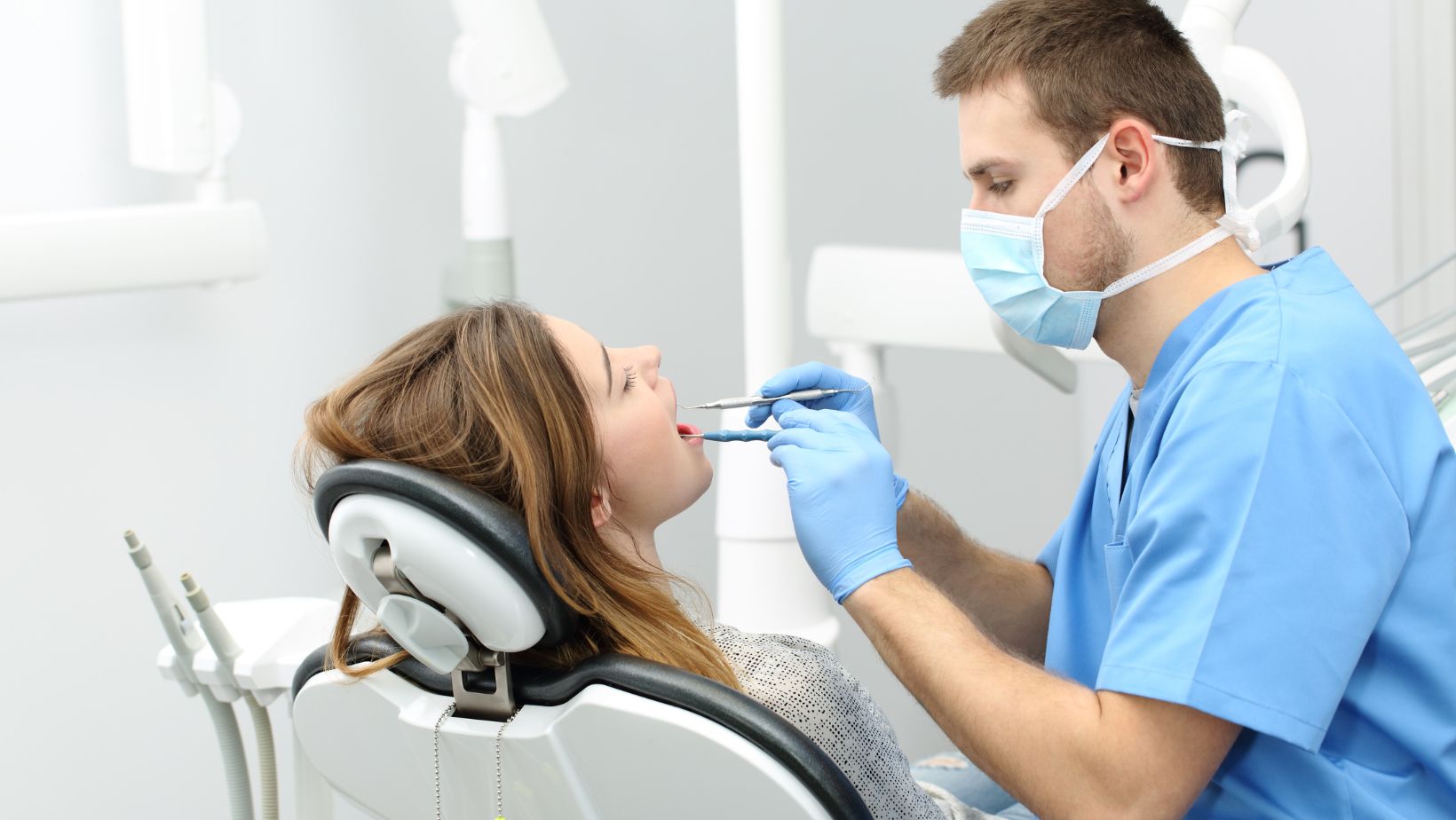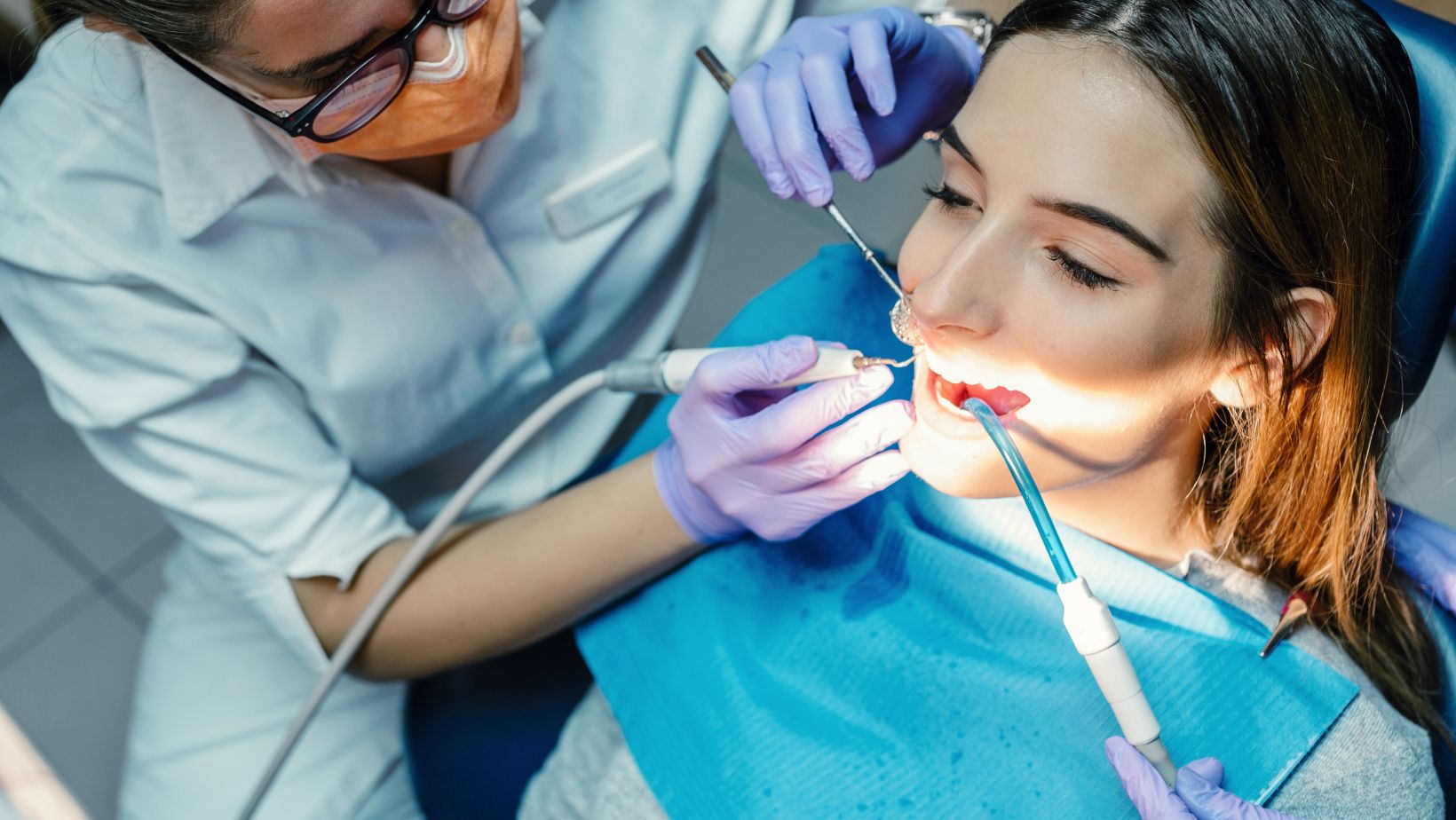Taking care of your teeth at home is important, especially if you can’t visit a dentist. Regular visits to the dentist are ideal for keeping your teeth healthy, but there are many ways to maintain good oral hygiene and prevent dental problems from worsening when a dental appointment is not possible. In some cases, visiting an emergency dentist Calgary is the right choice but here’s what you can do to ensure your oral health stays in top shape.
Brush Your Teeth Twice a Day
Brushing your teeth properly is one of the most important things you can do for your dental health. Make sure you brush your teeth at least twice a day, ideally in the morning and before bed. Use a soft-bristled toothbrush and fluoride toothpaste. Brushing helps remove food, plaque, and bacteria that build up on your teeth throughout the day.
It’s important to brush for at least two minutes each time. Pay attention to all surfaces of your teeth, including the outer, inner, and chewing surfaces. Don’t rush—taking your time ensures that you remove as much plaque as possible. Brush gently to avoid damaging your gums, and make sure to replace your toothbrush every three to four months or sooner if the bristles are worn out.
Floss Daily to Prevent Gum Disease
Flossing is just as important as brushing for preventing cavities and gum disease. Brushing alone only cleans around 60 to 70% of the tooth’s surface area, which means the remaining areas between your teeth are often left untreated. Flossing helps remove food particles and plaque stuck between your teeth that a toothbrush can’t reach.
To floss correctly, use around 18 inches of dental floss. Wrap it around your middle fingers, leaving around one to two inches of floss to work with. Hold the floss tightly between your thumbs and index fingers and gently slide it between your teeth. Be careful not to snap the floss into your gums. As you reach the base of each tooth, curve the floss into a C shape, gently rubbing it against both sides of the tooth to clean the area.
Use a Tongue Scraper for Fresh Breath
Bad breath often originates from the bacteria found on the tongue. These bacteria can contribute to oral health problems like gum disease and tooth decay. Brushing your tongue as part of your daily routine can help reduce the buildup of bacteria and keep your breath fresh.
In addition to brushing your tongue, consider using a tongue scraper. A tongue scraper helps remove bacteria and can improve your sense of taste. Copper tongue scrapers are especially effective because they have antimicrobial properties that can help keep your mouth cleaner. Gently scrape the back of your tongue towards the front, being careful not to apply too much pressure.
Upgrade to an Electric Toothbrush
If you’re looking to improve your brushing routine, consider switching to an electric toothbrush. Research shows that electric toothbrushes are more effective than manual brushing at removing plaque and reducing the risk of gum disease. The oscillating motion of an electric toothbrush helps clean your teeth more thoroughly, especially in hard-to-reach areas like between your teeth and along the gumline.
Electric toothbrushes are also easier to use, making it less likely that you’ll miss a spot while brushing. Many models have built-in timers to ensure you brush for the recommended two minutes, which is crucial for effective cleaning. Additionally, some electric toothbrushes have pressure sensors that alert you if you’re brushing too hard, which can damage your gums over time.
Avoid DIY Teeth Whitening at Home
While many over-the-counter whitening products claim to provide a brighter smile, they may not be safe or effective. Whitening treatments can lead to tooth sensitivity and damage to your enamel, especially if they are used incorrectly. It’s best to avoid DIY teeth whitening methods at home, such as using baking soda, hydrogen peroxide, or other harsh chemicals.
If you’re concerned about staining, the best solution is to avoid foods and drinks that cause discoloration, such as coffee, tea, wine, and sugary beverages. If your teeth are already stained, consult with a dentist about professional whitening options that are safe and tailored to your needs.
Protect Your Teeth From Injury
Accidents happen, and sometimes a dental emergency can occur when you least expect it. Protecting your teeth from injury is essential to avoid complications that may require an emergency dentist’s intervention. If you play sports or engage in activities with a risk of injury, consider wearing a mouthguard. Mouthguards can protect your teeth from fractures or damage, especially if you’re involved in contact sports or activities like skateboarding or cycling.
Additionally, avoid using your teeth for tasks that could cause damage, such as opening packages, biting your nails, or chewing on hard objects. These habits can lead to cracks, chips, or even tooth loss. If you do experience a tooth injury, try to keep the tooth in a safe condition (such as placing it in milk if it gets knocked out) and seek dental attention as soon as possible.
Don’t Ignore Red or Swollen Gums
Image: Red Gums Care.jpg
Gum problems, such as redness, swelling, or bleeding, are common signs of gum disease. Gingivitis is an early stage of gum disease that can be treated with proper oral hygiene, but if left untreated, it can progress to periodontitis, a more severe condition that can lead to tooth loss.
If you notice any of these symptoms, don’t wait for a dentist appointment to take action. Continue brushing and flossing as usual, but be more gentle around the affected areas to avoid aggravating your gums further. Rinse your mouth with an antimicrobial mouthwash to help reduce bacteria in your mouth and soothe your gums. If symptoms persist for more than a few days, seek professional dental care.
Maintain a Healthy Diet for Better Oral Health
Your diet plays a significant role in your oral health. Eating a balanced diet rich in vitamins and minerals can help keep your teeth and gums strong. Foods high in calcium, such as dairy products, leafy greens, and fortified plant-based alternatives, can strengthen your tooth enamel. Vitamin C-rich foods, such as citrus fruits and berries, support gum health and prevent gum disease.

It’s also important to limit sugary snacks and drinks, as they can contribute to tooth decay and cavities. If you do consume sugary foods, try to brush your teeth shortly after to remove any leftover sugar. Drinking plenty of water throughout the day also helps rinse your mouth and keep your teeth clean.
When to Seek Help
While maintaining good oral hygiene at home is essential, there are times when you should seek professional help from an emergency dentist. If you experience severe tooth pain, swelling, or bleeding that doesn’t stop, it’s crucial to visit a dentist as soon as possible. Similarly, if you’ve suffered a tooth injury, a dentist can provide the necessary care to prevent further damage or infection.
Regular visits to the dentist are the best way to ensure your oral health is on track, but these at-home tips can help you maintain a healthy smile in between appointments. Taking care of your teeth at home with proper brushing, flossing, and tongue scraping will prevent many dental issues and help keep your mouth clean and fresh.
Final Thoughts
If you can’t visit an emergency dentist for any reason, following these steps can help you keep your teeth in good condition. With proper care, you can avoid many common dental issues and ensure your oral health remains in top shape. However, don’t forget that regular dental check-ups are essential for catching problems early and maintaining overall health.





